To tackle homelessness faster, LA has a kind of real estate agency for the unhoused
By Jennifer Ludden
Dan Valdez, housing acquisitions manager for the nonprofit Brilliant Corners, checks out a recently leased property near downtown Los Angeles. Grace Widyatmadja/NPR hide caption
toggle caption Grace Widyatmadja/NPRDan Valdez, housing acquisitions manager for the nonprofit Brilliant Corners, checks out a recently leased property near downtown Los Angeles.
Grace Widyatmadja/NPRLOS ANGELES — Dan Valdez's mission can seem impossible. Every day, he's on the hunt for vacant units — lobbying landlords to take in some of the tens of thousands of unhoused people in one of the tightest and most expensive real estate markets in the U.S.
"There's cold-calling involved. There's knocking on doors. There's ... canvassing throughout L.A. County, which is a quite wide area," he says.
Valdez is with the nonprofit Brilliant Corners, which partners with L.A. County's Department of Health Services to act like a kind of real estate agency for the unhoused.
, in California and beyond, as more places desperately seek new ways to house a record number of people living on their streets.How paying for an empty apartment pays off
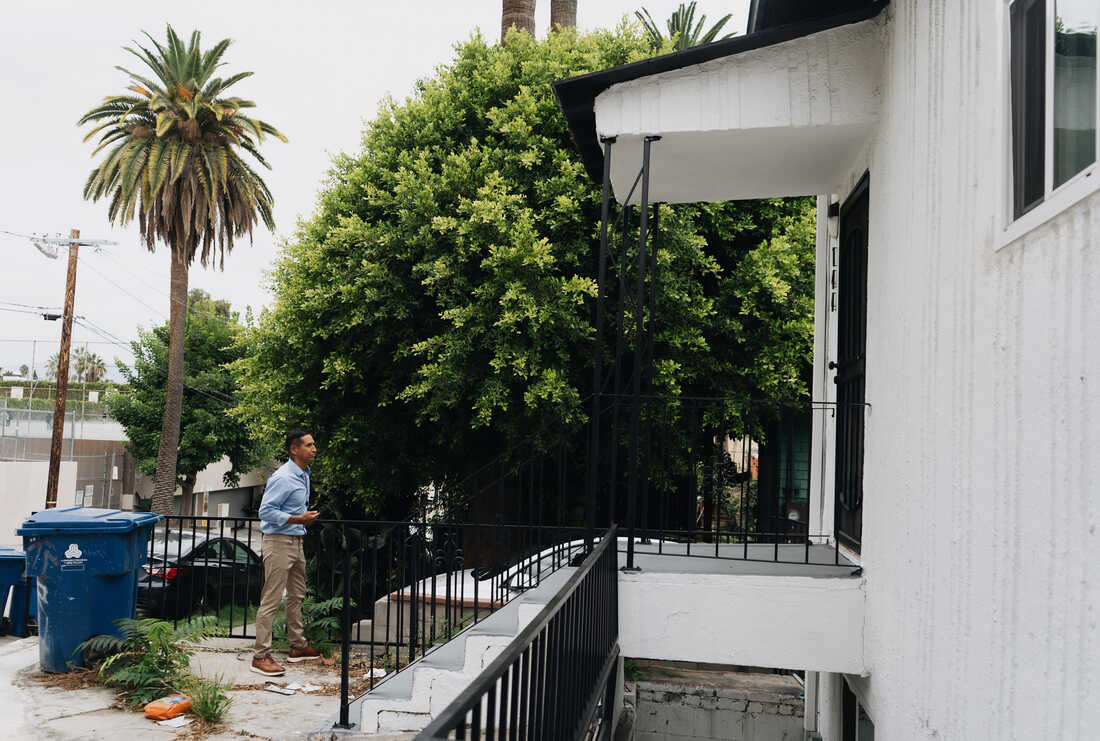
Brilliant Corners is able to pay rent immediately, even before a tenant moves in. It's a major selling point for landlords, who often endure red-tape and delays before tenants with a federal housing voucher can start a lease. Grace Widyatmadja/NPR hide caption
toggle caption Grace Widyatmadja/NPRBrilliant Corners is able to pay rent immediately, even before a tenant moves in. It's a major selling point for landlords, who often endure red-tape and delays before tenants with a federal housing voucher can start a lease.
Grace Widyatmadja/NPROn a recent midday, Valdez is checking out a new apartment in his portfolio, in a quiet area not far from downtown. He targets places in the sizes people need and the areas they want to live, close to transportation, shops and services. Clients can choose from up to three places, which helps get them housed more quickly.
This cozy apartment opens to a main room with a newly renovated kitchen, a small bedroom off one side and a bathroom on the other. "Very nice, remodeled unit as you can tell, and smells like new," he says.
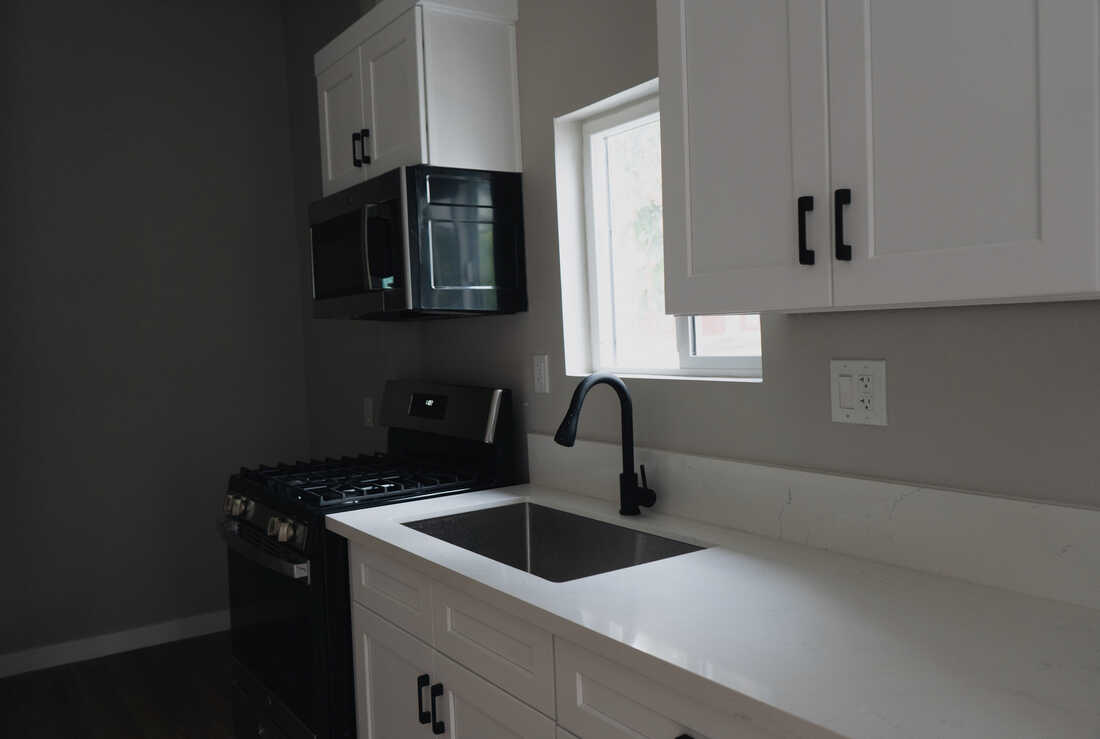
Brilliant Corners aims to have a stock of available housing, even if some units sit empty for up to two months. It allows renters to move right in as soon as their housing voucher and paperwork are ready. Grace Widyatmadja/NPR hide caption
toggle caption Grace Widyatmadja/NPRBrilliant Corners actually negotiated to get the monthly rent down to $2,100 from $2,300. But here's something that really gives it an edge: The program can start paying rent right now — even if this place sits empty for up to two months.
"That, for a landlord, can be quite revolutionary," says Chris Contreras, the program's chief operating officer. "We're going to bring people to rent your unit [so] you don't have to market it. ... And we are stopping your vacancy loss almost immediately."
California actually bans voucher discrimination, but it's hard to enforce and a major problem. In fact, many people lose their voucher because they can't find any landlord willing to take it, especially in this tight market. To try and speed up the process, L.A. Mayor Karen Bass from federal officials this summer to relax rules around documentation, though they did not change the requirement for a property inspection.
Many Brilliant Corners clients have local vouchers that are more flexible. The program also tries to ease concerns landlords might have about tenants with poor credit or a criminal background. And it offers incentives, like two months rent for a security deposit in some cases.
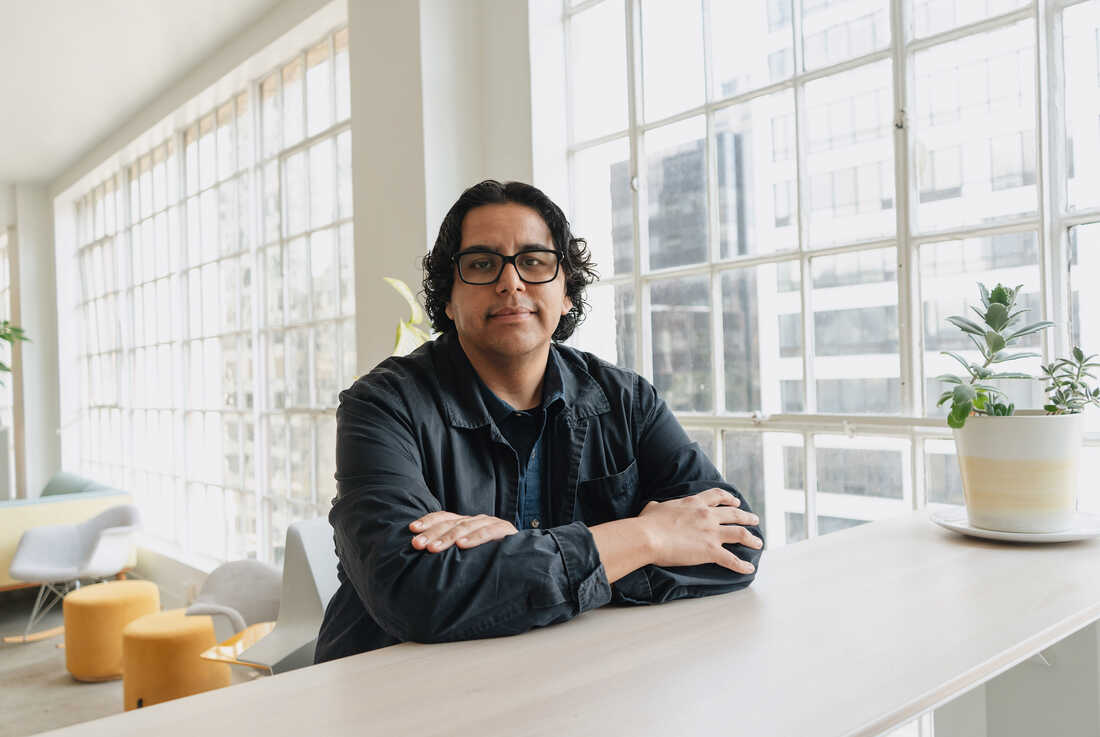
Brilliant Corners Chief Operating Officer Chris Contreras says the homelessness housing program builds good relationships with landlords. "Whenever they have a vacancy, they're calling somebody at Brilliant Corners to ask if the unit is needed," he says. Grace Widyatmadja/NPR hide caption
toggle caption Grace Widyatmadja/NPRBrilliant Corners Chief Operating Officer Chris Contreras says the homelessness housing program builds good relationships with landlords. "Whenever they have a vacancy, they're calling somebody at Brilliant Corners to ask if the unit is needed," he says.
Grace Widyatmadja/NPR"We've created repeat business relationships with landlords," Contreras says. "Whenever they have a vacancy, they're calling somebody at Brilliant Corners to ask if the unit is needed."
The program draws on state, local and federal funds, and its budget has grown to more than $200 million in recent years. On average, it places into permanent housing every month, and it's helped more than 12,000 people since it launched nearly a decade ago. A 2017 found that for every $1 invested in the program, the county saved $1.20 in healthcare and other social service costs for people experiencing homelessness.
But its job has gotten more challenging as affordable housing has become ever more scarce.
. And the report finds the shift toward more expensive housing is especially dramatic in California. Experts say the growing shortage of is a key driver of homelessness, which has steadily climbed to some across Los Angeles County."Housing for poor and working class people is still not the priority," White says. "And until that becomes the priority, we will continue to see informal settlements grow across the city."
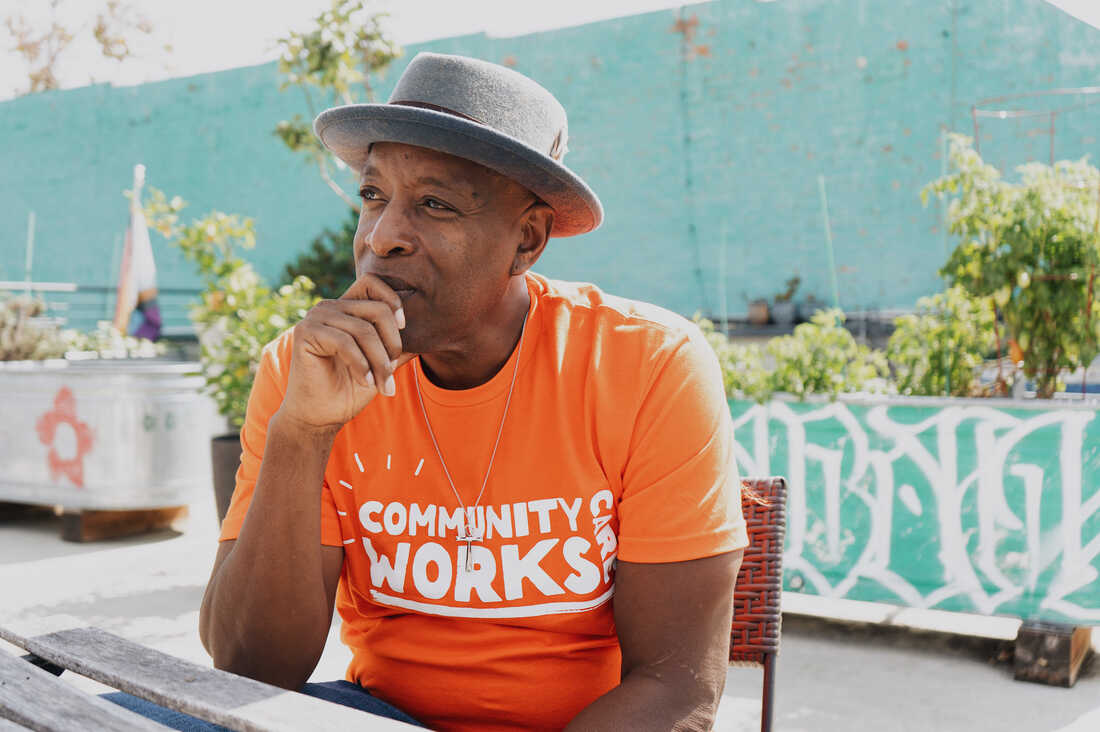
Homelessness advocate Pete White says there needs to be an even greater focus on creating permanent, affordable housing. Grace Widyatmadja/NPR hide caption
toggle caption Grace Widyatmadja/NPRSix years ago, L.A. voters did approve a $1.2 billion bond measure to build deeply subsidized permanent housing for the chronically homeless, and thousands of such units are finally . Mayor Bass also has pushed to affordable housing development and make more available for it. But the need far outpaces such gains.
Even programs like Brilliant Corners can only help so much. Nationally, just a quarter of people who qualify for federal housing vouchers actually get them — often after a years long wait — and in L.A., the county estimates it's 1 in 10.
The growing homelessness numbers have put more focus on prevention. Los Angeles is even that uses artificial intelligence to predict who's most at risk for losing housing and help before it happens.
This is why another key selling point for Brilliant Corners, for both funders and landlords, is its higher-than-average success rate at keeping tenants housed.
"It feels like a second family"
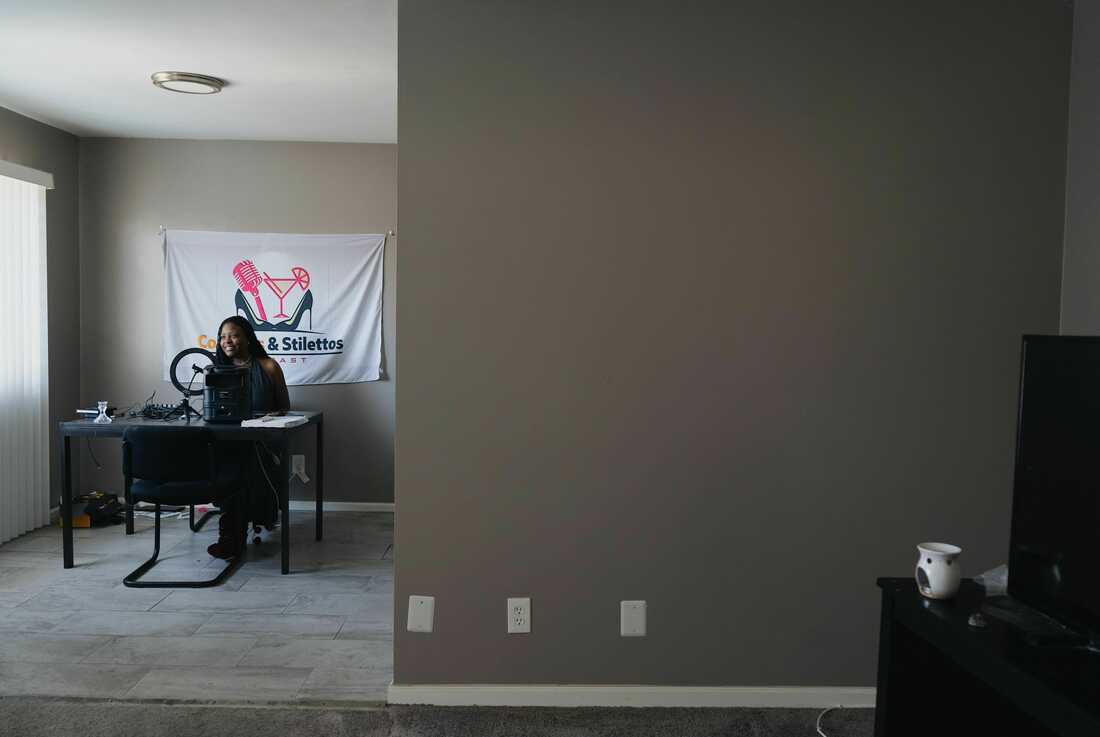
Brilliant Corners connected Tameka Swain to this Inglewood apartment after she and her son had struggled without housing. She's created a make-shift studio in her kitchen and hosts her own podcast. Grace Widyatmadja/NPR hide caption
toggle caption Grace Widyatmadja/NPRTameka Swain has lived in a sunny apartment in Inglewood for three years, with a bedroom decorated in purple, her favorite color. Although after years of trauma, when she finally got her own place it felt too lonely and weird to sleep in it. "I used to sleep out in the living room all the time, on the couch," she says.
Swain lost housing after moving to L.A. with her teenage son. She found work at a nail salon, but it wasn't enough to cover rent. For a while they shuffled between living in a car and motels, and then Swain was convicted of theft.
.


